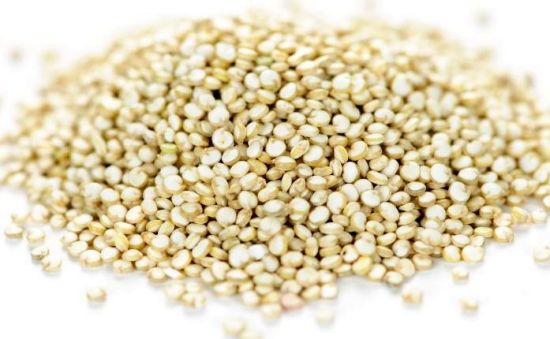Quinoa is an interesting form of pseudocereal that is not technically a grain, or a traditional cereal. It is a crop that has been grown for thousands of years, and is grown mainly for its edible seeds. The scientific name of quinoa is Chenopodium, and it is a species of goosefoot. It is primarily grown in South America, in the Andean region, including countries like Ecuador, Peru, Colombia, and Bolivia.
It is related to spinach and beetroots, and is a becoming a major foodstuff in America, Europe, China, and Canada, despite the fact that it must be imported. It is highly valuable because it is such a nutrient-rich food source, and it can be used like many common grains, or ground into a powder or flour. It has a very low content of fat and can be added to diets around the world as a healthy alternative to many other similar foods.
Nutritional Value of Quinoa
Quinoa is considered such an essential “wonder food” because it not only has a tremendous amount of vitamins and minerals, but also organic compounds and various other nutrients that can have a huge impact on our health. Quinoa is consumed around the world in ever-increasing numbers because it is wonderfully nutritious and very versatile in a number of foods.
There is an impressively large amount of manganese, magnesium, and phosphorous, as well as significant amount of iron, zinc, copper, and potassium. Quinoa even has trace amounts of calcium, sodium, and selenium. Quinoa is also a rich source of phytonutrients and flavonoids like kaempferol and quercetin, as well as tryptophan, which have their own very special health benefits that add to the demand for quinoa.
Finally, there are a huge amount of protein components and vital amino acids that the body needs within quinoa. This is one of the best things about this wonderful food.
Vitamin Content of Quinoa
Quinoa is not just a mineral and organic chemical-rich form of food, it’s also an ideal source of vitamins.Vitamins help the body function properly and are essential parts of any diet. Quinoa contains significant amounts of thiamin, riboflavin, folate, and vitamin B6.
This makes quinoa the perfect food to help regulate the internal functions and the metabolism of the body, due to the high number of B-complex vitamins it contains.
Caloric Content of Quinoa
100 grams of quinoa only contains 120 calories, and only 2 grams of fat. For a grain-like substance, that is far less than fat than most foods of that type. For people concerned about their weight, replacing other grain foods with quinoa is a wonderful way to slim down.
Health Benefits of Quinoa
This delightful and delicious food has a number of associated health benefits, including its ability to reduce the symptoms of diabetes, and it is a very powerful dietary item for controlling and regulating heart health. It can reduce blood pressure and cholesterol levels, as well as fat levels in the body. It is full of antioxidant components that can reduce cancer and other free radical diseases like premature aging and heart disease.
Finally, it is very good for the digestive system, including the suppression of appetite, which can further help people to lose weight. It can also help people who struggle with sleeplessness and insomnia, thanks to the very high levels of tryptophan.

Hiç yorum yok:
Yorum Gönder